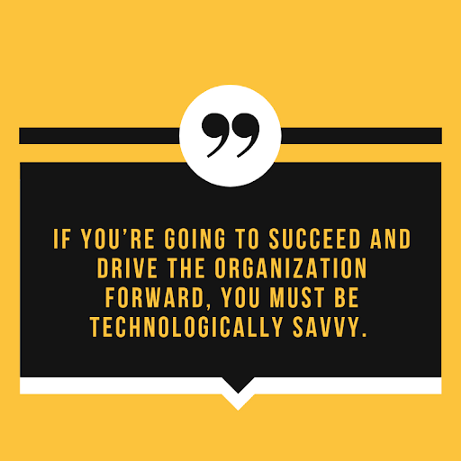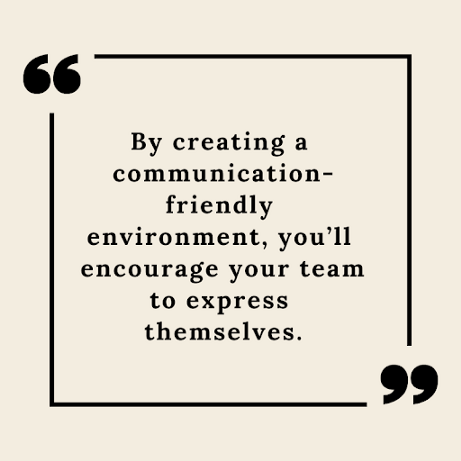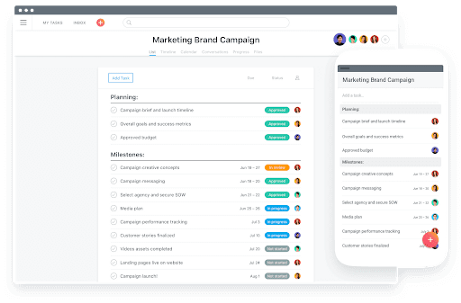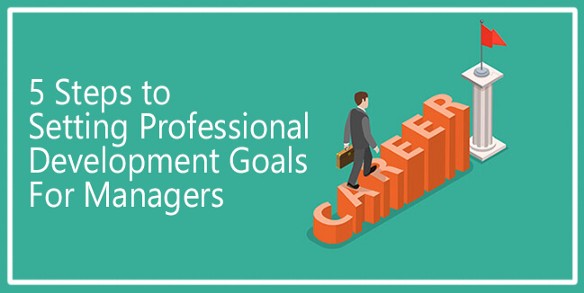Do you often wish you could climb the career ladder faster, earn a higher salary, and become a mentor in your industry? Luckily, your wishes can easily come true. And the key lies in setting professional development goals.
[bctt tweet=”By setting goals at work, not only you’ll remain competitive among your peers, but you’ll be an asset to any employer. What’s more, you’ll progress professionally and support the development of your team.” username=”GyanRecruit”]
If you’re a manager, goal setting means you can work to improve your professional knowledge, get acquainted with the newest technology, and develop effective working practices.
In case you don’t know where to start, I’ve put together a list of 5 professional development goals that can get you inspired and push you toward success. Let’s take a look!
Step 1: Sign Up for Leadership Training
If you’re striving for professional accomplishments, why not sign up for leadership training? Every business needs to have an effective leader who can set goals, inspire others, and lead an organization to sustainable success. You can be that leader!
All great leadership training programs cover a variety of topics, including:
- Leading high-performing teams.
- Ethical leadership.
- Creating a culture that retains talent.
- Improving collaboration and communication.
Leadership development programs have delivered results for some of the most notable corporate leaders. Not only that you’ll strengthen your capabilities and confidence, but you’ll also develop the skills to create a culture of engagement and motivation.
If you don’t know where to start, I recommend taking a look at the training programs at:

Step 2: Familiarize Yourself With the Newest Technology
I once had a manager who wanted his secretary to print out all emails so that he can read them on his desk. This attitude won’t pass today. If you’re going to succeed and drive the organization forward, you must be technologically savvy.
The truth is, you’ll probably struggle if you aren’t familiar with the IT trends and the tech advances. The list of your professional development goals should contain the part where you familiarize yourself with the newest tools and software for managing your employees and projects effectively.
Regardless if you’re in the IT industry, or in the closet industry, you need to have a firm grasp of what’s going on in the tech world. Don’t worry; you don’t need to be an expert. Just know enough so that you and your team stay current.
If you’re an HR manager, get up-to-date with the most popular tools and software for your team. Get a good grasp of your preferred software or tool before introducing it to your team. When your team sees that you’ve successfully managed to use it, they’ll be motivated to do the same.

Step 3: Improve Your Communication Skills
Every team, in order to be successful, needs encouragement. Each one of your employees, if you want them to be engaged, needs transparency. But how can you offer words of encouragement or promote transparency if you don’t have the proper communication skills?
Believe me when I say, one of the most critical professional development goals for managers is developing great communication skills. Why? Only for a large number of reasons!
- By creating a communication-friendly environment, you’ll encourage your team to express themselves. There’ll be a constant flow of communication, and everyone will be able to share their opinions.
- Managers who know how to hold effective meetings are the most successful ones. When you learn how to speak to your team and how to deliver news, you’ll maximize employee productivity and engagement:
- When you and your team communicate properly, you won’t have a hard time accomplishing tasks, meeting deadlines, and completing projects.
- When you learn how to be open to your employees’ points of view, their concerns, and suggestions, you’ll have more flexible, more honest, and more productive conversations.

Step 4: Learn How to Manage Your Team Remotely
Did you know that nearly 63 percent of companies today have remote workers? Or that, in the U.S. alone, 43% of the workforce has spent at least some time working remotely? This increase in remote work shouldn’t come as a surprise, as it appeals to both employees and companies. Employees get the flexibility and work-life balance they desire, while companies get reduced office space costs and a more productive workforce.
Maybe your team is still in-house, but the chances of you managing a remote team in the future are high. So why not pick up a few remote work management practices? You’ll most certainly get a competitive advantage over other more traditional managers.
Managing remote teams should 100% be part of your list of professional development goals. It’s always a good idea to have guidelines in place that will ensure everything is running smoothly and remote team members have the support they need.
In order to efficiently manage remote teams, you should:
- Use collaboration tools. You can choose between a wide range of tools such as Slack, Asana, Zoom, Google Drive, etc.
- Check out project management software to track projects and see what’s being worked on when a worker is remote.
- Hold remote onboarding meetings to make sure the new employee has access to key information to reach their full potential.
- Set clear expectations.
- Engage your remote workers daily through some kind of communication.
- Use video communication at least once a week to create more personal relationships.

Step 5: Participate in Professional Organizations
Setting professional development goals shouldn’t go without acknowledging the importance of participating in professional organizations. You can attend local, national, or international meetings, conferences, or workshops. You can serve as a board member of a professional organization. Or organize your company’s career fairs and networking events.
I know what you might be thinking. You have millions of responsibilities to juggle every day, and joining a professional organization is not your top priority.
However, thinking this way may cause you to miss the many benefits a professional association membership can get you. Most associations offer some of the following benefits:
- Access to exclusive online resources.
- Making lasting connections with other professionals in your field who have common interests or similar concerns.
- Access to a large number of courses free of cost or for a subsidized fee for their members.
- Upgrading your knowledge of business expertise and acquiring new skills in workshops, seminars, and conferences.

Source: Blue Steps
It’s Time to Work on Accomplishing Your Professional Development Goals
Now that I gave you a few ideas of what you should include on your list of professional development goals for managers, you can get out there and start upgrading yourself. Choose the goals that are suitable and relevant to you and start walking toward the professional accomplishments you’re striving for.
I’m wishing you all the best in your future endeavors!









